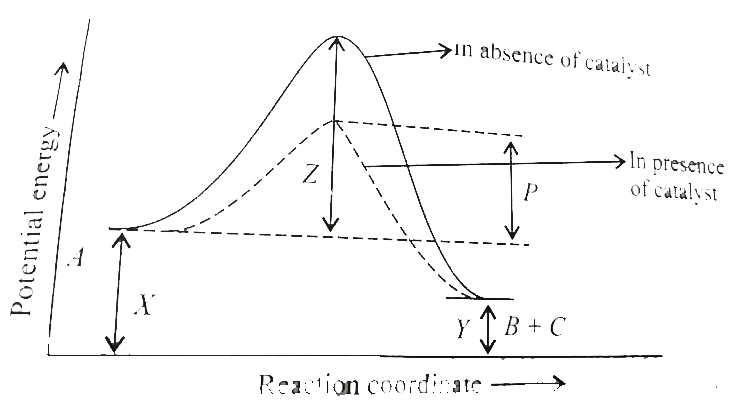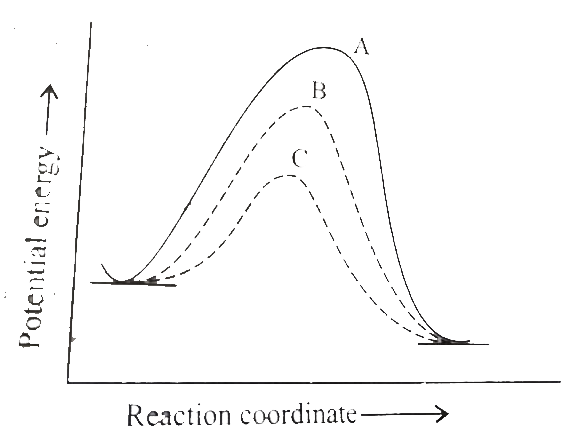Substances which alter the velocity of a reaction by mere presence, without undergoing any change in mass and compossition are termed catalyst and the phenomenon is known as catalysis
Which is incorrect for a catalyst?
A
A catalyst can initiate a reaction.
B
A catalyst remains uncharged in quality and composition at the end of reaction.
C
It does not alter the position of equilibrium in a reversible reaction.
D
Catalyst are sometimes very specific in reaction.
Video Solution
Text Solution
The correct Answer is:A
A catalyst cannot initiate reaction.
|
Topper's Solved these Questions
- SURFACE CHEMISTRYBOOK - CENGAGE CHEMISTRYCHAPTER - SURFACE CHEMISTRYEXERCISE - Exercises Multiple Correct
25 Videos
- SURFACE CHEMISTRYBOOK - CENGAGE CHEMISTRYCHAPTER - SURFACE CHEMISTRYEXERCISE - Exercises Single Correct
52 Videos
- SURFACE CHEMISTRYBOOK - CENGAGE CHEMISTRYCHAPTER - SURFACE CHEMISTRYEXERCISE - Exercises Subjective
10 Videos
- SOLUTIONSBOOK - CENGAGE CHEMISTRYCHAPTER - SOLUTIONSEXERCISE - Ex 2.3 (Objective)
9 Videos
- SYNTHETIC AND NATURAL POLYMERSBOOK - CENGAGE CHEMISTRYCHAPTER - SYNTHETIC AND NATURAL POLYMERSEXERCISE - Exercises Assertion Reasoning
10 Videos
Similar Questions
Knowledge Check
Substances which alter the velocity of a reaction by mere presence, without undergoing any change in mass and compossition are termed catalyst and the phenomenon is known as catalysis
For the reaction (A→B+C) , the energy profile diagram is given in the figure below.

The decrease in ht eenergy of activation in hte presence of catalyst isAZBZ−PCY−ZDZ−XSubstances which alter the velocity of a reaction by mere presence, without undergoing any change in mass and compossition are termed catalyst and the phenomenon is known as catalysis
In homogenous catalytic reactions, there are three alternative paths A, B, and C (shown in figure). Which one of the following indicates the relative ease with which the reaction can take place?
 AA.B.CBC.B.ACB.C.ADA=B=C
AA.B.CBC.B.ACB.C.ADA=B=CSubstances which alter the velocity of a reaction by mere presence, without undergoing any change in mass and compossition are termed catalyst and the phenomenon is known as catalysis
According to the adsorption theroy of catalysis, the rate of reaction increases becauseAAccording to the activation energy of the reaction.BConcentration of reactant molecules at the active centres of the catalyst becomes high due to adsorption.CAdsorption increases the activation energy of the reaction.DAdsorption decreases the activation of the energy of the reaction.
Substances which alter the speed of a chemical reaction without themselves undergoing a permanent change are known as
View SolutionSubstance which alter the velocity of reaction themselves remaining chemically and quantitatively unchanged after reaction are known as -
View SolutionA substance which promotes the activity of a catalyst is known as
View SolutionTischenko reaction yields ester in the presence of catalyst which is :
View SolutionTischenko reaction yields ester in the presence of catalyst which is :
View Solution
